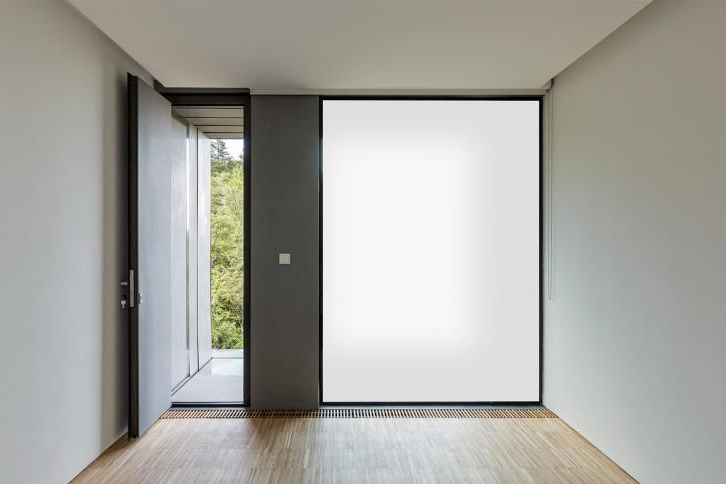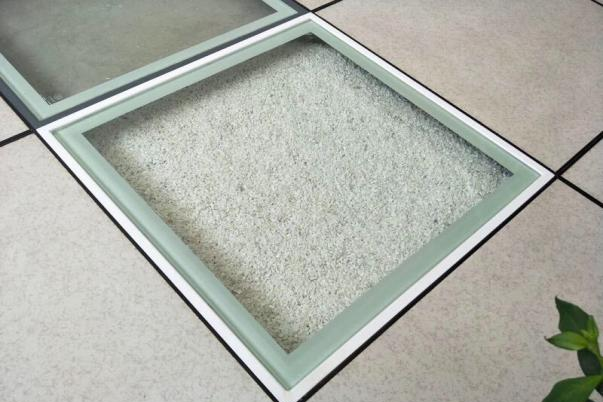If your UK home is located near roads, railway tracks or flight paths, noise intrusion can become a serious problem that needs to be dealt with. Triple glazing may be the ideal solution. It provides extra layers of insulation to block and dampen sound waves before they penetrate your home and create a headache for its inhabitants.
The design of triple glazed windows incorporates three layers of glass, interspersed with air or inert gas. This structure not only provides superior thermal insulation but also effectively dampens sound waves. The additional pane of glass and the increased overall thickness of the window unit act as a robust barrier against external noise. Consequently, triple glazing is particularly soundproof leading to diminishing the intrusion of traffic noise, neighborhood sounds, and other external disturbances, thus contributing to a quieter and more peaceful indoor environment. Laminated Translucent Glass

Argon gas is often used to fill the space between glazing panes; it is colourless, odourless and non-reactive gas that doesn’t react with other substances.
Triple glazing significantly enhances sound insulation in buildings, a feature increasingly sought after in these urban environments and areas prone to noise pollution.
This table summarises the technical aspects of triple glazing that contribute to its effectiveness in improving sound insulation.
Thick materials tend to reduce soundwave transmission more effectively. This explains why walls and doors tend to be much better soundproofing measures than windows since their thicker structures absorb vibrations rather than permitting them to pass through freely. Acoustic glazing works similarly.
Thickness and spacing between panes of glass play an integral role in their ability to reduce noise. Together these elements determine an STC rating which indicates how much sound reduction there has been through window or door systems.
Double glazing with two glass panes separated by an air gap has an STC rating of 36dB while triple glazing boasts an even higher 38dB STC rating; however, this doesn’t indicate that triple glazing will necessarily do more to reduce noise in your home compared to double glazing; depending on your circumstances and budget you may not notice an improvement with soundproofing either way; perhaps it would be more prudent to enhance existing double glazed units by either adding more glass panes or selecting thicker grade of glass instead.
Acoustic glazed windows are made up of multiple panes of varying thickness laminated together to offer enhanced acoustic performance. Thicker glass combined with space between panes filled with either argon or krypton can significantly decrease noise transmission through windows, providing increased peace and quiet.
Triple glazed acoustic glass windows will reduce noise through both their frame and sealant around their edges, as their design removes coincidence frequencies between panes of glass which can become an issue with thin windows in particular.
Acoustic glazing not only helps to reduce noise pollution but it also improves energy efficiency by keeping indoor temperatures consistent compared with standard glass, making acoustic glazing particularly suitable for homes in Andover and Hampshire located close to roads, railway lines or flight paths where external noise transmission can be disruptive.
Triple glazing windows are an effective solution to sound insulation issues, thanks to three panes separated by an air space filled with an acoustically sound gas like argon that enhances their acoustic performance.
Noise that passes through multiple layers of medium can become significantly weaker, decreasing its likelihood of penetrating into your home. Argon filling in triple-glazed windows helps reduce condensation while simultaneously increasing thermal efficiency in your home.
Triple glazing can significantly enhance both acoustic and energy efficiency in your home, as well as decrease outside noise pollution. Although more costly than double glazing, triple glazing’s increased comfort and energy savings make it worthwhile.
One of the primary sources of outside noise can be traffic, making life in urban areas challenging. But triple glazing can significantly decrease this noise and improve quality of life at home by providing an additional pane of glass that absorbs noise and dampens vibrations, creating a quieter environment within your home.
Triple-glazed windows increase insulating properties, making them more effective at dampening external noise. This is achieved because adding an additional pane reduces heat transfer between inner and outer frames, decreasing heat loss while simultaneously increasing your energy savings.
However, gap size between panes plays an integral part in determining triple glazing’s noise reduction capabilities. If it is too narrow, its performance could be compromised and at least 20mm should exist between panes for effective noise penetration prevention.
Triple-glazed window glasses have an impactful influence on their acoustic performance, ranging from laminated and tempered glasses to laminated windows that use spacer bars – they each play their own part in producing desired results depending on style, functionality and budget.
Triple glazing consists of adding an additional pane of glass that provides energy efficiency, security and soundproofing benefits. This additional pane increases your window’s STC (sound transmission class) rating while also helping reduce external noise by dampening vibrations that cause it to pass through – perfect for living near an airport, busy road or noisy neighbours! Triple glazed windows make a fantastic option.
Your new windows’ acoustic performance depends heavily on the type and thickness of glass used during their construction. Glazing firms use various options for glass selection in order to achieve maximum energy efficiency, thermal and sound insulation properties – these range from clear, tinted or low-e glass through laminated and acoustic glazing solutions.
Laminated or toughened acoustic glass is often the ideal solution for home owners looking to reduce noise pollution in their living environment. This specialised window glass features an additional plastic layer – such as polyvinyl butyral – which protects it against damage while simultaneously improving its acoustic properties. Furthermore, laminated acoustic windows can be sealed using polyvinyl butyral seals, further strengthening its bond and further increasing acoustic performance of triple glazed windows.
Triple glazed windows utilise air or gases such as argon or krypton to fill the spaces between their glass panes, blocking out drafts and reducing external noise. Different materials vibrate at different frequencies which allows some frequencies to pass through while blocking others; with additional layers adding weaker vibrations reducing outside noise pollution.
Double glazing windows designed with sound proofing in mind such as Anglian’s Safe and Sound Glass produce 36dB sound insulation, but triple glazed windows offer even greater soundproofing thanks to an additional pane providing additional barriers against noise outside your home. Together these panes help block outside noises for a peaceful home environment.
Triple glazed windows use spacers made from aluminium channel to reduce sound levels, but other materials like stainless steel or butyl rubber may also be used as spacers. When filled, argon gas fills this gap to absorb and dampen sound waves that could enter your home from outside noise sources, significantly decreasing noise pollution in your environment.
Thick layers of glass also contribute to an effective level of soundproofing, by blocking various frequencies of sound waves that travel along them. As such, thicker glass layers reduce penetration into rooms or homes.
Single pane windows lack an air barrier, allowing vibrations from external noises to easily transmit through and enter your home. By adding more panes of glass insulation, soundwaves are absorbed and dampened down by this additional layer.
Each insulated glass unit typically uses either argon or krypton gas as filler material to fill any spaces between its panels, as this gas is denser than air and helps reduce energy loss while also offering superior acoustic performance.
Triple glazed windows can improve their acoustic performance through using various glazing combinations, for instance thicker panes of glass paired with laminated material such as acoustic grade laminate can further diminish unwanted outside noise penetration.
Triple glazing can be an ideal way to boost the acoustic performance of any home, but its benefits may not outweigh those from double glazed windows with greater glass thickness or acoustic grade glass if your living near busy roads, airports or noisy neighbours. Instead, investing in double glazed windows with higher glass thickness or acoustic grade glass would offer more benefit in providing improved acoustic performance with no need to buy new frames and enjoy greater peace and quiet at home.
Save my name, email, and website in this browser for the next time I comment.

Laminated Glass Thickness Follow us on social media